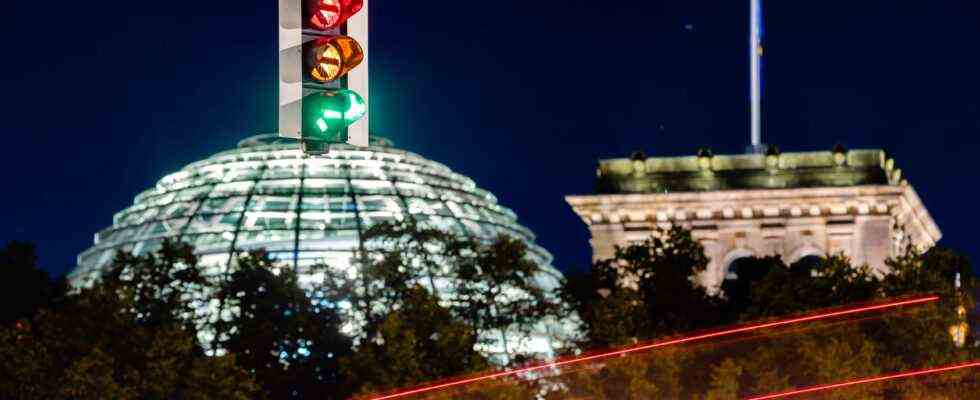Status: 10/19/2021 3:50 a.m.
The coalition negotiations between the SPD, FDP and the Greens are expected to begin on Thursday. What are the most contentious questions? And is it really only at the end that people talk about posts?
This is what Christian Lindner of 2017 sounded like when he broke negotiations with the Union and the Greens for a Jamaica coalition: “It is better not to govern than to govern wrongly.” And this is what the FDP boss of the year 2021 sounds like, shortly before coalition negotiations for a traffic light: “We are now on the way to take responsibility for Germany.”
Challenges of the Triple Alliance
But on this path towards responsibility, there are still a lot of challenges lurking at the wayside that could become uncomfortable for the traffic light coalitionists. Despite the setting of a minimum wage of twelve euros: Both the Greens and the SPD base encounter a lack of understanding that there will be no tax increases – not even for the particularly wealthy. “When I look at the distribution issues, I am disappointed that it was not possible with the FDP to fight the great justice crisis,” says Jessica Rosenthal in ARD-Interview. The Juso federal chairman certainly sees opportunities to “get something out of” the coalition negotiations.
Hints from SPD leader Norbert Walter-Borjans that changes could possibly be made to the inheritance tax were immediately cleared away by the Greens. So no up on taxes, but at least no down, like Green Party leader Robert Habeck in ARD “Report from Berlin” sought to emphasize. But without being able to hide a loudly audible grinding of teeth. “I would say: let’s agree on a tie with the FDP. Not what I wanted. But it is what it is: a compromise,” said Habeck.
Green light and red cards
There was no draw, but an FDP victory at the speed limit. Otherwise, however, the exploratory paper serving as a template for the upcoming negotiations on the subject of climate bears an unmistakably green signature. Whereby one of the central but still unanswered questions is: Where should the money for the far-reaching restructuring in terms of the environment and digital come from when tax increases are taboo and the debt brake should be sacred?
“That is not serious because it is not feasible at all,” said the President of the German Institute for Economic Research, Marcel Fratzscher, in the ZDF. The traffic light coalitionists oppose this by saying that they would increasingly give the green light to private investments and at the same time show some expensive subsidies the red card. But what subsidies that should be, if not the commuter flat-rate, as FDP boss Lindner made clear, all of this is now a matter for the coalition negotiations.
Open questions in foreign policy
In the talks, by the way, some foreign policy nuts have to be cracked: Elsewhere, on pensions, minimum wages and immigration, the exploratory paper is astonishingly clear. When it comes to key security issues such as drone armament, how to deal with US nuclear weapons or NATO’s two percent target, pretty much all questions remain unanswered.
Incidentally, the precise layout of some ministries is also completely open. “That was an accident,” said FDP boss Lindner after being in the ARD had spoken of a “climate ministry” to be created as a third “powerhouse” next to the Chancellery and the Ministry of Finance. Hardly a mistake, however, was that some in the FDP had verbally tried to heave their boss into the finance minister’s chair in the past few days.
But leading personnel debates too early and, above all, too publicly, can seriously disturb the “positive vibes” that Lindner admitted to feeling. And you will still need a lot of positive vibrations if you want to stick to the timetable promised by SPD chancellor candidate Olaf Scholz and swear in the new government before Christmas.
The way to the traffic light – coalition negotiations
Kai Küstner, ARD Berlin, October 18, 2021 8:39 pm

